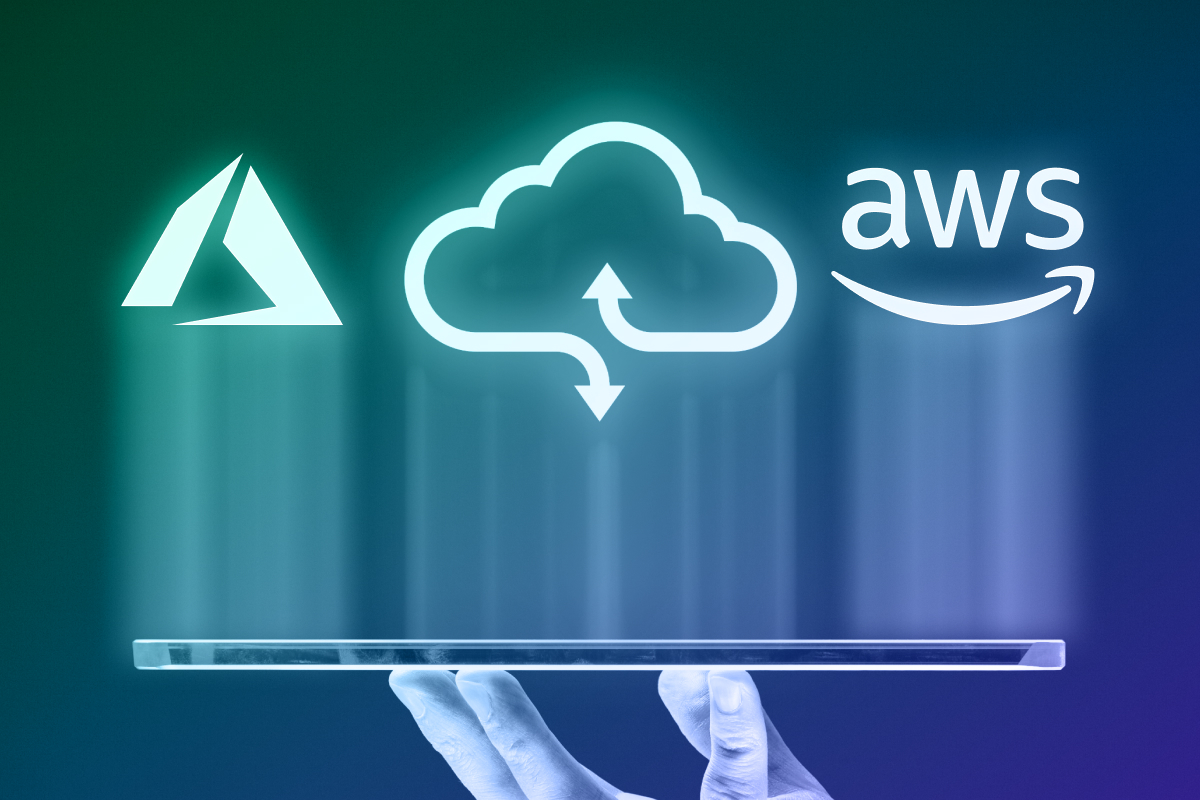Not to make you nervous, but the decision between AWS, Azure, and Google Cloud could be a defining factor in your company’s success story.
In the realm of cloud computing, three titans—Amazon Web Services (AWS), Microsoft Azure, and Google Cloud Platform (GCP)—stand ready to empower your business. Each offers a unique blend of features, services, pricing, and performance that could be the key to unlocking your company's full potential.
This article delves into an in-depth comparison of these leading cloud providers, equipping you with the insights needed to make an informed and strategic decision. Whether you seek scalability, seamless integration, or cutting-edge innovation, we'll help you determine which cloud titan aligns best with your business goals.
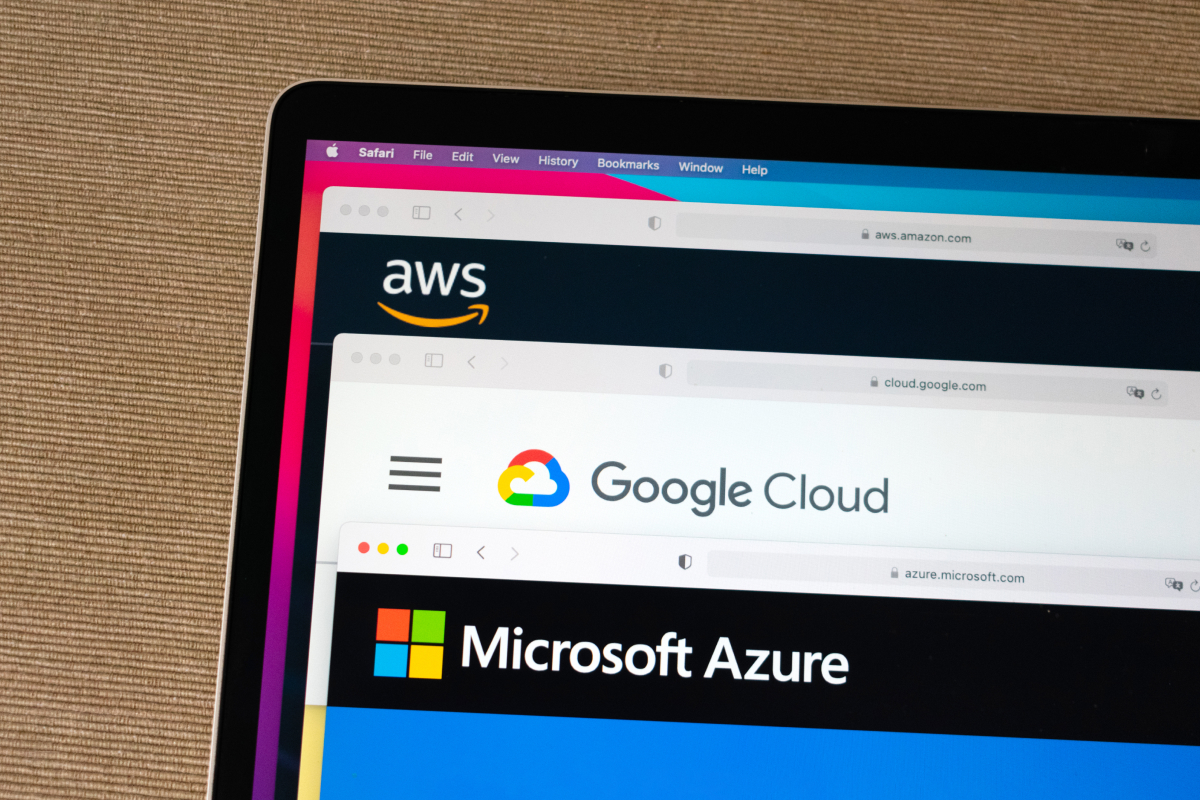
The Basics of Cloud Computing
Cloud computing enables businesses to access computing resources over the internet, eliminating the need for physical hardware and infrastructure. Understanding the different types of cloud deployment models is essential for choosing the right solution:
- Public Cloud: Services provided over the public internet and shared across multiple users. It offers cost efficiency and scalability. AWS, Azure, and Google Cloud primarily operate as public clouds.
- Private Cloud: Services dedicated to a single organization, providing enhanced security and control. Ideal for businesses with stringent regulatory requirements or sensitive data.
- Hybrid Cloud: Combines public and private clouds, allowing data and applications to be shared between them. This model offers flexibility, allowing businesses to keep sensitive data in a private cloud while leveraging the public cloud for other tasks.
Understanding the Top Cloud Providers: AWS vs Azure vs GCP
Before diving into the comparison of AWS, Google Cloud, and Azure, let's briefly examine what these cloud giants offer to today's businesses.
.jpg)
What is AWS (Amazon Web Services)?
Amazon Web Services (AWS) is a comprehensive cloud platform by Amazon, offering over 200 services including computing power, storage, and databases. AWS empowers businesses to scale and innovate without substantial upfront investments.
Known for its reliability, flexibility, and extensive global infrastructure, AWS's key offerings include Amazon EC2 for computing, Amazon S3 for storage, and Amazon Lambda for serverless computing. It's ideal for those seeking robust IaaS solutions with pay-as-you-go pricing and autoscaling resources, simplifying the cloud experience. For businesses looking to migrate to AWS, our AWS Migration Services can help streamline the process.
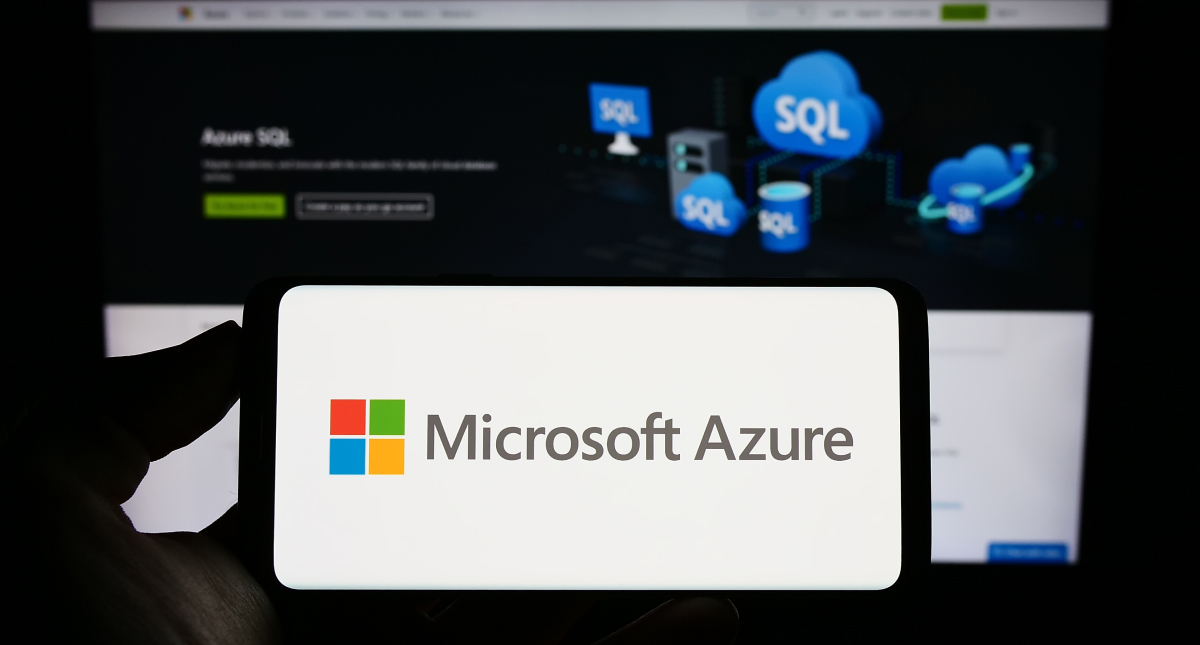
What is Microsoft Azure?
Microsoft Azure is a cloud platform that helps organizations build, manage, and deploy applications globally. It integrates seamlessly with Microsoft’s ecosystem, making it a trusted choice for enterprises.
Azure supports a wide range of services, including computing, analytics, and networking. It excels in hybrid cloud solutions, allowing businesses to combine on-premises infrastructure with cloud services. This makes Azure a strategic ally for companies looking to maintain their data centers while benefiting from cloud agility and innovation. For an easier move to Azure, check our expert Azure Migration Services.

What is Google Cloud?
Google Cloud, a suite of cloud services by Google, focuses on data analytics, machine learning, and open-source technologies. It offers flexible and scalable infrastructure, making it a preferred choice for businesses seeking cutting-edge solutions for digital transformation.
Google Cloud is renowned for its robust security, hybrid and multi-cloud capabilities, and top-notch data warehousing solutions. Its BI and ML tools enable businesses to derive insights from data, drive informed decisions, and stay ahead in technological innovation.
Which Platform to Choose: AWS vs Azure vs GCP Comparison
In case you are still on the fence about which platform to choose, here are some specific advantages of each one:
Why Choose AWS for Cloud Migration?
- Market Leader: AWS is considered the pioneer in cloud computing and holds the largest market share. This leadership position often translates to a broad and mature service portfolio, offering extensive options for businesses of all sizes.
- Global Reach: AWS has a vast global network of data centers spread across multiple geographic regions. This expansive infrastructure ensures low-latency access to services worldwide, making it an ideal choice for businesses with a global presence.
- Service Variety: AWS offers a comprehensive set of services spanning computing, storage, databases, machine learning, Internet of Things (IoT), and more. This diversity can accommodate a wide range of use cases, from startups to large enterprises.
- Ecosystem: AWS boasts a rich ecosystem of third-party integrations, tools, and a vibrant community. This extensive support network makes it easy to find solutions, resources, and expert advice, enhancing the overall user experience.
- Security and Compliance: AWS provides robust security features and holds numerous compliance certifications. This makes it suitable for industries with strict regulatory requirements, such as healthcare, finance, and government sectors.
- Cost Management: AWS offers various cost optimization and management tools, including AWS Cost Explorer and AWS Trusted Advisor. These tools help businesses monitor and control their cloud spending effectively.
Not sure if AWS is the right fit for your business? Talk today with our expert AWS Consulting Services Team for insights into the best cloud provider for your company.
Why Choose Azure for Cloud Migration?
- Hybrid Cloud: Azure is renowned for its strong hybrid cloud capabilities, seamlessly integrating with on-premises environments. This makes it an excellent choice for organizations with a mix of cloud and on-premises infrastructure, providing flexibility and continuity.
- Enterprise Focus: Azure has a significant presence in the enterprise market and is well-integrated with Microsoft's suite of products, including Windows Server, Active Directory, and Office 365. This integration streamlines operations for businesses already using Microsoft solutions.
- AI and Machine Learning: Azure offers robust AI and machine learning services, making it an excellent choice for organizations looking to harness the power of AI in their applications. Services like Azure Machine Learning and Cognitive Services provide advanced capabilities for developing intelligent applications.
- Windows Workloads: Azure is often the preferred choice for organizations that rely heavily on Windows-based workloads and applications. Its seamless compatibility with Windows environments ensures smooth operations and enhanced performance.
- Developer Tools: Azure provides a rich set of developer tools and services, including Azure DevOps and Visual Studio integration. These tools enhance the development experience, making it easier for developers to build, test, and deploy applications.
- Global Data Centers: Azure has a growing number of data centers worldwide, enabling organizations to deploy resources close to their target audience. This helps improve performance and meet data residency requirements.
For those looking to leverage Azure, our Azure Cloud Consulting Services can provide tailored solutions.
Why Choose GCP for Cloud Migration?
- Data Analytics and Machine Learning: GCP excels in data analytics and machine learning with services like BigQuery, TensorFlow, and Dataflow. It's a preferred choice for data-driven organizations looking to leverage advanced analytics and AI capabilities.
- Open Source Embrace: Google is strongly committed to open-source technologies, reflected in GCP's support for popular open-source tools and libraries. This commitment makes GCP an attractive option for organizations that rely on open-source solutions.
- Networking and Edge Computing: GCP boasts a high-performance global network and a strong focus on edge computing. This makes it suitable for applications that require low latency and high bandwidth, ensuring optimal performance for real-time applications.
- Big Data: GCP offers a variety of Big Data services, such as Bigtable, Dataflow, and Dataprep. These services make it a popular choice for organizations dealing with large datasets, providing powerful tools for processing and analyzing data at scale.
- Sustainability: Google has made significant commitments to sustainability and renewable energy, making GCP an environmentally responsible choice. Organizations prioritizing green initiatives can benefit from Google's dedication to sustainability.
- Kubernetes and Containers: GCP was an early adopter of Kubernetes, offering robust container management solutions like Google Kubernetes Engine (GKE). This makes it a strong choice for organizations leveraging containerized applications for their scalability and efficiency.

Features and Services Comparison
When comparing cloud providers, it's crucial to look at the range of features and services they offer. This section delves into the specifics of data storage options, security measures, and the performance of compute services provided by AWS, Azure, and Google Cloud. For more in-depth information tailored to your company, we recommend our Cloud Strategy and Planning Services to discover which cloud provider is the best fit for you.
Analyzing Data Storage Options Across Providers
Data storage is a fundamental aspect of cloud services, and each provider offers a variety of options to cater to different needs:
- AWS: Amazon S3 (Simple Storage Service) is designed for high scalability, durability, and flexibility. S3 offers several storage classes, including Standard for frequently accessed data, Intelligent-Tiering for automatic cost savings, and Glacier for long-term archival. These classes help optimize costs and performance based on data access patterns.
- Azure: Azure Blob Storage provides similar flexibility with Hot, Cool, and Archive tiers. Hot storage is optimized for data that is accessed frequently, Cool storage for infrequently accessed data, and Archive storage for rarely accessed data that needs long-term retention. Azure's integration with other Microsoft services makes it particularly appealing for businesses already using the Microsoft ecosystem.
- Google Cloud: Google Cloud Storage offers a comprehensive range of storage classes, including Standard, Nearline, Coldline, and Archive. Standard is for frequently accessed data, Nearline is for data accessed less than once a month, Coldline is for data accessed less than once a year, and Archive is for long-term storage. Google Cloud Storage's deep integration with BigQuery and other analytics services is a significant advantage for data-driven applications.
Security Measures Implemented by Azure, AWS, and Google Cloud
Security is a top priority for cloud providers, and AWS, Azure, and Google Cloud have robust measures in place to protect customer data and applications:
- AWS: Security features include Identity and Access Management (IAM) for granular control over user permissions, AWS Shield for protection against DDoS attacks, and AWS Inspector for automated security assessments. AWS also offers encryption for data at rest and in transit, ensuring comprehensive protection.
- Azure: Azure employs Azure Active Directory (AAD) for identity and access management, which integrates with on-premises directories for hybrid scenarios. Azure Security Center provides advanced threat protection and unified security management. Additionally, Azure Sentinel offers SIEM (Security Information and Event Management) capabilities to detect and respond to threats in real-time.
- Google Cloud: Security features include IAM for managing access to resources, the Security Command Center for centralized visibility and control over security risks, and Google's Titan Security Key for enhanced protection against phishing. Google Cloud also offers encryption for data at rest and in transit, and its security model is built on Google's rigorous internal security practices.
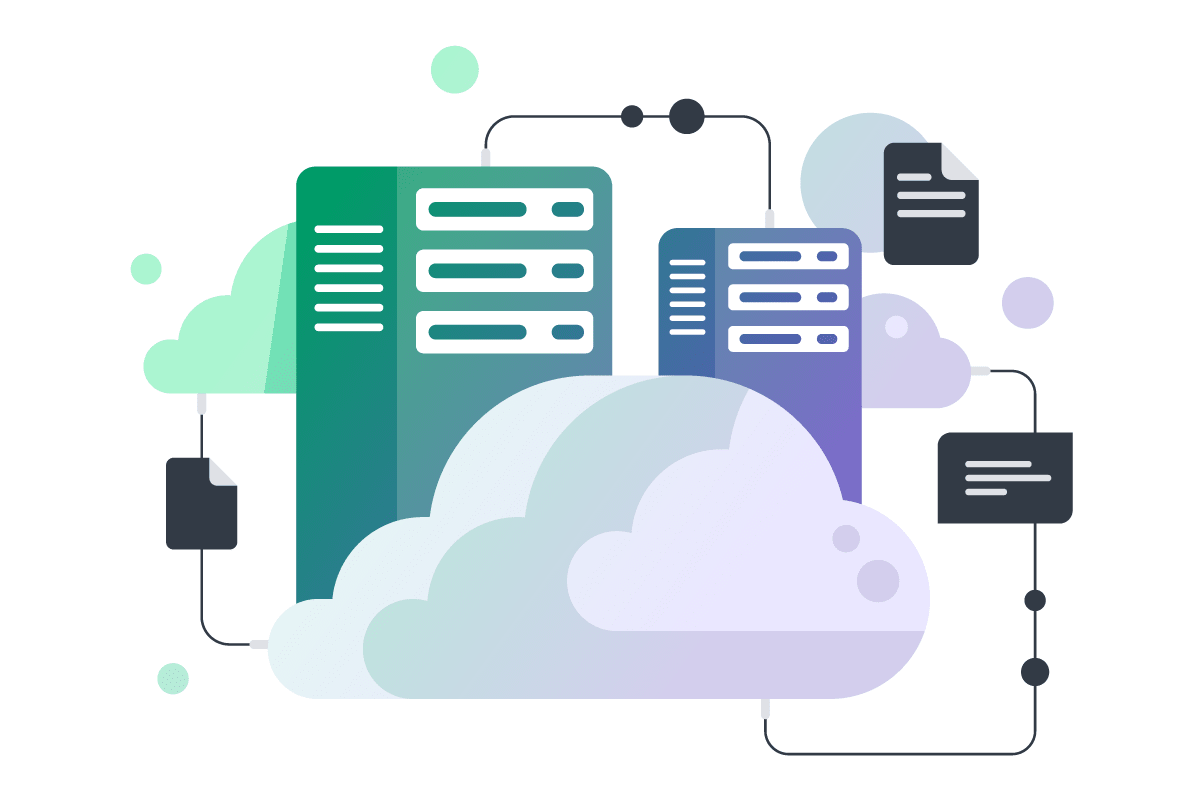
Performance Evaluation of Compute Services Offered
The performance of compute services is crucial for running applications efficiently. AWS, Azure, and Google Cloud offer a range of compute options tailored to different needs:
- AWS: Amazon EC2 (Elastic Compute Cloud) provides a wide variety of instance types optimized for different workloads, including general-purpose, compute-optimized, memory-optimized, and storage-optimized instances. EC2's flexibility allows businesses to choose the right instance type based on their specific performance requirements. Additionally, features like Elastic Block Store (EBS) for persistent storage and Auto Scaling help manage varying traffic demands.
- Azure: Azure Virtual Machines offer a comparable range of sizes and types, from burstable VMs for cost-effective solutions to high-performance VMs for demanding applications. Azure's integration with other Microsoft services, such as Azure Site Recovery for disaster recovery, enhances its value for enterprises. Azure VMs support both Windows and Linux environments, providing versatility for different development and production needs.
- Google Cloud: Google Compute Engine emphasizes cost-efficiency and customization. It offers predefined machine types for common workloads and custom machine types that allow businesses to specify the exact amount of CPU and memory needed. This customization helps optimize resource use and costs. Google Cloud also provides high-performance options like Preemptible VMs for short-term, cost-effective compute needs, and integrates tightly with Kubernetes for container orchestration.
Performance and Reliability Comparison
When choosing a cloud provider, performance and reliability are crucial factors to consider. Assessing each provider's uptime guarantees, service level agreements (SLAs), and scalability features can help you determine the best fit for your needs.
Assessing Uptime Guarantees and Service Level Agreements
Uptime guarantees and SLAs are vital indicators of a cloud provider's reliability. They reflect the provider's commitment to maintaining service availability and performance.
- AWS: Guarantees 99.99% uptime for EC2 and S3 services, ensuring high availability.
- Azure: Offers a 99.95% uptime SLA for VMs and 99.99% for storage services, providing reliability for mission-critical applications.
- Google Cloud: Provides a 99.99% uptime SLA for Compute Engine and Cloud Storage, ensuring consistent performance.
Comparing the Scalability and Elasticity Features of the Cloud Providers
Scalability and elasticity are key to handling fluctuating workloads and ensuring your applications can grow with your business. Each provider offers unique features to facilitate automatic scaling and load distribution.
- AWS: Features Auto Scaling and Elastic Load Balancing, enabling applications to scale in response to demand fluctuations seamlessly.
- Azure: Provides Virtual Machine Scale Sets and Azure Load Balancer, facilitating automatic scaling and load distribution.
- Google Cloud: Offers Autoscaler and Load Balancing, designed to handle varying workloads efficiently and ensure optimal resource utilization.
Determining the Impact of Downtime on Business Operations
Minimizing downtime is crucial for business continuity and operational efficiency. Even brief periods of downtime can lead to significant financial losses, decreased productivity, and damage to a company's reputation.
AWS, Azure, and Google Cloud offer robust tools and services to mitigate the risk of downtime and ensure high availability. These include multi-region deployments, automated backups, and advanced monitoring solutions.
- Multi-Region Deployments: By deploying applications across multiple regions, businesses can ensure redundancy and failover capabilities. This means that if one region experiences an outage, the application can continue to run in another region, minimizing disruption.
- Automated Backups: Automated backup solutions offered by these cloud providers allow businesses to schedule regular backups of their data and applications. In the event of a failure, these backups can be quickly restored, ensuring that data loss is minimized and operations can resume swiftly.
- Advanced Monitoring and Alerts: Tools like AWS CloudWatch, Azure Monitor, and Google Cloud Monitoring provide real-time insights into the health and performance of applications and infrastructure. These tools can automatically trigger alerts and initiate corrective actions if potential issues are detected, preventing downtime before it occurs.
- Disaster Recovery Services: Services like AWS Disaster Recovery, Azure Site Recovery, and Google Cloud Disaster Recovery enable businesses to replicate and recover their IT systems and data in the event of a major incident, ensuring that operations can be restored quickly with minimal data loss.

AI and Machine Learning Capabilities
Artificial Intelligence (AI) and Machine Learning (ML) are becoming increasingly important for businesses looking to leverage data for insights and automation. AWS, Azure, and Google Cloud each offer robust AI and ML services, catering to various business needs and expertise levels.
Exploring AI Services Offered by Azure, AWS, and Google Cloud
Each cloud provider offers a suite of AI services designed to make it easier for businesses to implement advanced AI and ML solutions. These services cater to different aspects of AI, from building and deploying models to specialized tasks like image analysis and natural language processing.
- AWS: SageMaker facilitates the building, training, and deployment of machine learning models at scale. AWS Rekognition provides image and video analysis, while AWS Comprehend offers natural language processing capabilities.
- Azure: Azure AI and Cognitive Services provide pre-built APIs for vision, speech, language, and decision-making tasks. Azure Machine Learning Studio offers an end-to-end environment for developing and deploying machine learning models.
- Google Cloud: AI Platform supports the entire machine learning lifecycle, from data preparation to model deployment. Vision AI provides image analysis, and Natural Language API enables advanced text analysis.
Machine Learning Tools and Frameworks Available on Each Platform
The availability of diverse machine learning tools and frameworks on each platform enables data scientists and developers to work with familiar tools and integrate advanced capabilities into their projects.
- AWS: Supports popular frameworks like TensorFlow, PyTorch, and MXNet on SageMaker, offering flexibility for data scientists and developers.
- Azure: Integrates with TensorFlow, PyTorch, and Scikit-learn on Azure Machine Learning, providing a comprehensive toolkit for machine learning projects.
- Google Cloud: Natively supports TensorFlow, PyTorch, and Keras on AI Platform, leveraging Google’s expertise in AI and machine learning for powerful and scalable solutions.

Pricing and Cost Analysis
When choosing a cloud provider, pricing is a critical factor since it will impact your budget for years. Comparing the pricing models of Amazon Web Services (AWS), Microsoft Azure, and Google Cloud Platform (GCP) is essential for finding the best fit for your needs and budget. Each platform adopts a pay-as-you-go model with different instance types, storage costs, data transfer fees, and discounts.
Understanding these differences helps optimize spending and resource allocation for efficient and cost-effective cloud operations. It's important to consider not just current pricing but also how costs will scale with your application or business growth.
Breakdown of Pricing Models for Different Cloud Platforms
Here’s a snapshot of how pricing differs among these providers as of August 2023. Always check their websites for the most up-to-date pricing information before making a decision.
AWS (Amazon Web Services)
- Pay-As-You-Go Model: AWS continues to offer flexible, cost-controlled pricing through its Pay-As-You-Go model.
- Instance Types: AWS provides various instance types with pricing based on performance and capacity. Users can create detailed cost estimates using the AWS Pricing Calculator.
- Storage Costs: Costs for storage services like Amazon S3 and Amazon EBS are based on capacity and access patterns.
- Data Transfer: Ingress (data received) is typically free. Egress (data sent) costs vary by volume and region, usually ranging from $0.05 to $0.09 per GB.
- Discounts: Discounts are available through Reserved Instances and AWS Savings Plans, which offer cost savings with upfront payments

Azure (Microsoft Azure)
- Pay-As-You-Go Model: Azure offers cost savings through its Pay-As-You-Go model and Reserved VM Instances.
- Instance Families: Azure provides instance families optimized for different workloads.
- Storage Costs: Storage costs are based on capacity and usage for services such as Azure Blob Storage and Azure Disk Storage.
- Data Transfer: Ingress is generally free, while egress costs vary by volume and region.
- Discounts: Volume discounts are available through the Azure Hybrid Benefit for customers with existing licenses.

GCP (Google Cloud Platform)
- Pay-As-You-Go Model: GCP includes predefined and custom machine types in its Pay-As-You-Go model.
- Storage Costs: Storage costs depend on capacity and access frequency for services like Google Cloud Storage and Google Persistent Disk.
- Data Transfer: Costs for data transfer vary based on the amount of data sent and received.
- Discounts: Discounts are available through Committed Use Contracts, which offer savings for one or three-year commitments.
- Support Tiers: GCP offers three support levels—Basic, Development, and Production—with varying coverage and response times.
Comparing Free Tier Offerings Among Azure, AWS, and Google Cloud
Here's a comparison of the free tier offerings from Azure, AWS, and Google Cloud:
| Feature | Azure | AWS | Google Cloud |
| $ Credit | $200 credit for 30 days | N/A | $300 credit for 90 days |
| Free Period | 12 months | 12 months | N/A |
| Free VM Usage | 750 hours/month of B1S VMs | 750 hours/month of EC2 t2.micro instances | 1 f1-micro VM instance per month in US regions |
| Free Storage | 5 GB of block blob storage | 5 GB of S3 storage | 5 GB/month of Cloud Storage |
| Free Database Usage | 250 GB of SQL Database | 750 hours/month of RDS database usage | N/A |
| Always Free Services | 25+ services always free | 25+ services always free | Several always free services |
| Always Free Functions | 1 million executions/month of Azure Functions | 1 million free Lambda requests per month | 2 million invocations/month of Cloud Functions |
| Always Free DB | 5 GB/month of Azure Cosmos DB | 25 GB of DynamoDB storage | 1 GB/day of Cloud Firestore storage |
| Always Free Auth | 5,000 free authentications with Azure Active Directory | 10 GB of Elastic Container Registry storage | N/A |
| Free Tier Eligibility | For new customers | For new customers | For new customers |
| Popular Services Free | 750 hours/month of B1S VMs, 5 GB of block blob storage, 250 GB of SQL Database | 750 hours/month of EC2 t2.micro instances, 5 GB of S3 storage, 750 hours/month of RDS database usage | 1 f1-micro VM instance per month in US regions, 5 GB/month of Cloud Storage, 1 GB/day of Cloud Firestore storage |
Key Pricing Differences:
- Azure and Google Cloud offer initial credits, while AWS does not
- AWS has the most extensive 12-month free tier offerings
- Google Cloud focuses more on always-free services rather than time-limited trials
- Azure provides the most generous free tier for database services
All three offer enough free resources to experiment with core cloud services like compute, storage, and databases. The best choice depends on your specific needs and which platform you want to learn.
Market Share and Popularity Trends
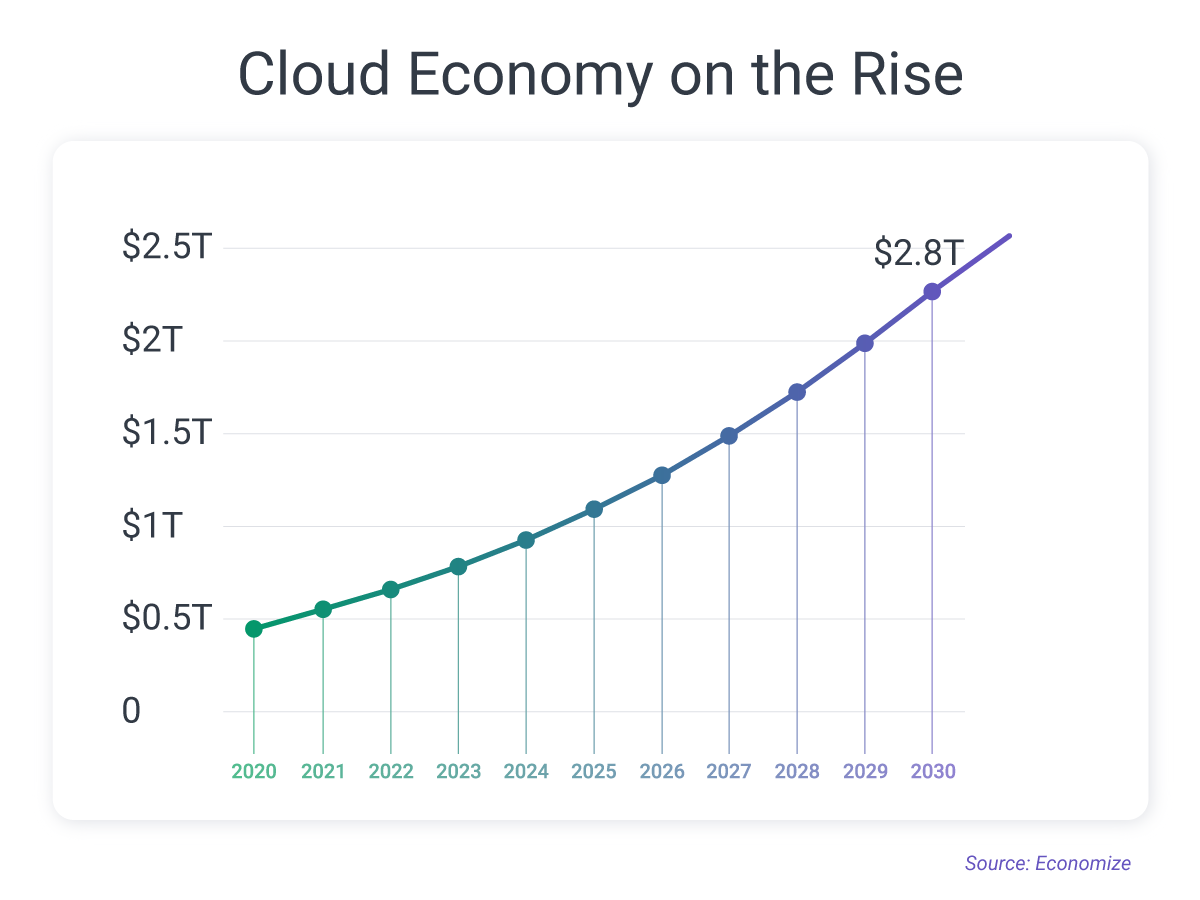
Examining the Current Market Dominance of the Big 3 Cloud Providers
Based on the latest data from Q4 2023 and early 2024, here are the current market share and popularity trends for the top 3 cloud providers:
- AWS: 31-32%
- Microsoft Azure: 23-25%
- Google Cloud Platform (GCP): 10-11%
The combined market share of the top three providers (AWS, Azure, GCP) has increased from 61% in 2021 to 67% in early 2024. Azure has seen particularly strong growth, gaining about 2 percentage points in market share over the past year. While AWS still dominates among heavy cloud users, Azure has taken a slight lead among light and moderate cloud users.
The collective market share of smaller cloud providers has shrunk from 48% to 36% since 2018, despite revenue growth, as they struggle to keep pace with the big three.
Analyzing Growth Patterns and Future Projections
While AWS maintains its leadership position, Microsoft Azure is showing the strongest growth trajectory, narrowing the gap with AWS. Google Cloud continues steady growth but remains in third place. The big three are consolidating their dominance in the cloud market, collectively controlling about two-thirds of the global market.
AWS continues to innovate, expanding its services and infrastructure globally. Azure is gaining ground by capitalizing on hybrid cloud capabilities and strong enterprise adoption. Google Cloud’s growth is fueled by its data and AI expertise, attracting customers in those domains.
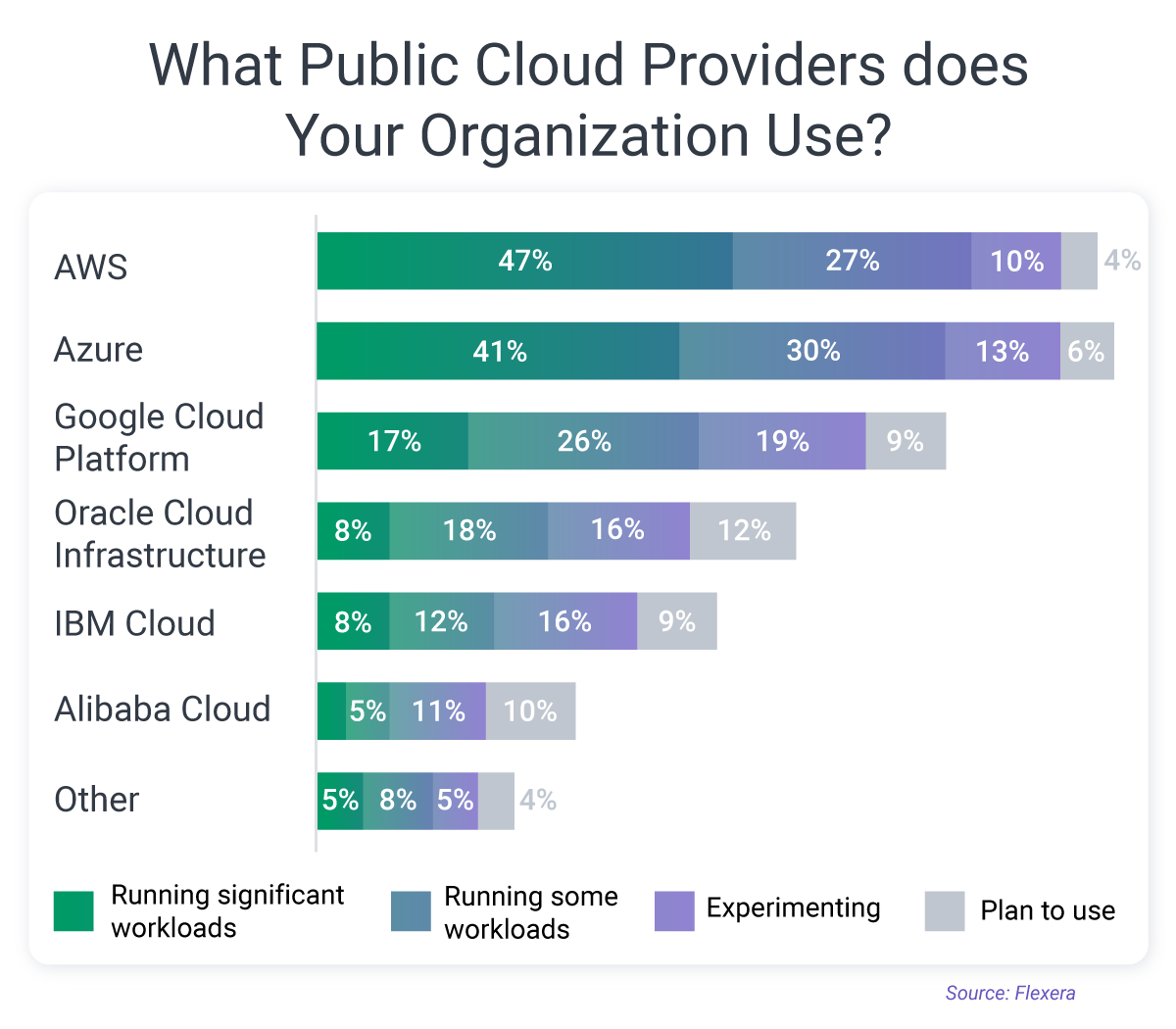
Use Cases for AWS vs Azure vs GCP
While all three major cloud providers (AWS, Azure, and GCP) offer robust cloud services, each excels in specific areas and caters to particular use cases. Here’s a breakdown of the strengths and ideal use cases for each provider:
AWS (Amazon Web Services)
- Global Reach and Scalability: AWS is ideal for businesses that require a large global presence and scalability, supported by its extensive network of data centers worldwide.
- Wide Service Offering: AWS’s broad range of services supports diverse use cases, including web hosting, artificial intelligence, analytics, IoT, and more.
- Mature Ecosystem: With a well-established customer base and extensive community support, AWS is particularly suitable for enterprises looking for a stable and reliable cloud provider.
Azure (Microsoft Azure)
- Integration with the Microsoft Ecosystem: For organizations invested in Microsoft products, Azure offers seamless integration, enabling smooth hybrid cloud deployments and migrations. Azure also supports Windows-based virtual machines, which is a unique offering compared to some other cloud providers.
- Hybrid Cloud Solutions: Azure is a preferred choice for businesses with existing on-premises infrastructure, offering robust hybrid cloud computing capabilities.
- Strong Emphasis on Security: With a focus on compliance and advanced security features, Azure is well-suited for industries with strict data regulations, such as finance and healthcare.
GCP (Google Cloud Platform)
- Data and Analytics Expertise: GCP excels in data management and analytics, making it a great fit for businesses reliant on big data processing and machine learning.
- Kubernetes Prowess: Google’s leadership in Kubernetes and containerization makes GCP attractive for enterprises deploying container-based applications.
- Performance and Networking: GCP’s high-performance global network ensures low latency and fast data transfer, ideal for applications requiring rapid response times and efficient data handling.

Final Word
Selecting the right cloud provider—whether it's AWS, Azure, or Google Cloud—depends on your specific business needs and goals.
Understanding the unique strengths of each provider can be complex, and making the best choice for your business requires expert guidance.
Reach out to us for expert cloud consultation to help you make an informed decision and ensure you choose the best cloud provider to meet your business objectives. Our Cloud Consulting Services team is ready to assist you in navigating the cloud landscape and optimizing your cloud strategy.
FAQs
Q: What are the key differences between AWS, Azure, and Google Cloud?
A: Each of the three major cloud providers has its own unique set of services, pricing structures, and global reach. AWS is considered to have a broader range of services and more mature platform, Azure is known for its seamless integration with Microsoft products, and Google Cloud is preferred for its data analytics and machine learning capabilities.
Q: How do AWS, Azure, and Google Cloud cater to startups?
A: All three cloud providers offer startup programs that provide credits, technical support, and resources to help early-stage companies build and scale their businesses in the cloud. These programs aim to support startups by reducing costs and providing access to cutting-edge cloud technologies.
Q: What advantages does each cloud provider offer in terms of cloud solutions?
A: AWS is known for its extensive range of services and robust infrastructure, Azure excels in hybrid cloud solutions and integration with Microsoft products, while Google Cloud stands out in data analytics, machine learning, and AI capabilities.
Q: How can one choose between AWS, Azure, and Google Cloud for their cloud projects?
A: It is essential to evaluate the specific requirements of the project, such as scalability, pricing, security, and desired features. Conducting a thorough comparison of the services offered by each provider and considering factors like ease of use and compatibility with existing systems can help in making an informed decision. Trust in our cloud migration services to guide you on seamlessly transitioning between cloud providers or infrastructure types.




